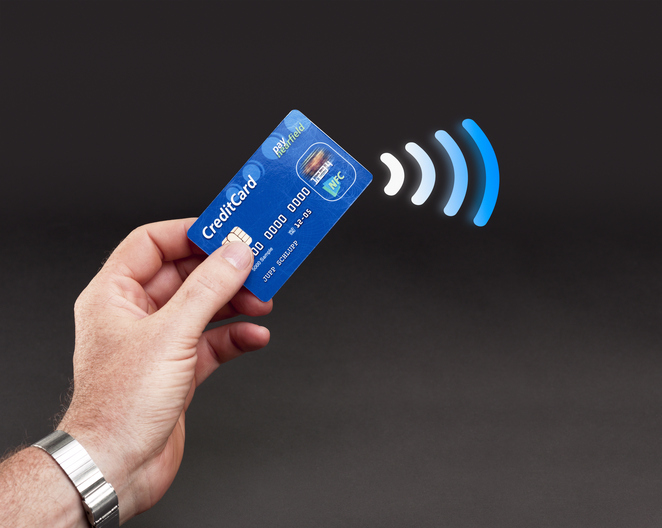What will the new £1 coin cost your business?

With an estimated one in thirty counterfeit £1 coins in circulation, the change in the new £1 coin should be welcomed by the industry. If in fact it will reduce the amount of counterfeit coins being passed to Parking Operators, it could arguably save the industry lost revenue. However, what does the industry need to do to change their parking payment machines and make sure that customers (and parking operators) are not left short as the existing machines are not able to accept the new £1 coin?
Introducing a new coin to reduce the burden on UK business
Today, the Bank of England has issued the new 12 sided £1 coin. The existing coin will remain in circulation for the following six months, but will be phased out as banks will no longer issue the old £1 coin. During this period one could argue that cash payment machines need to accept both coins, and definitely need to be ready for the new coins from March and with certainty from October 2017 when only the new coin will be in circulation.
So, why is this change happening? The current £1 coin has been in circulation for over thirty years, which is much longer than a normal life time of a modern British coin. Over time the number and quality of counterfeit coins has increased, at a cost to business and the UK tax payer. The best long term solution is to introduce a new coin that is harder to replicate.
What impact does this have on the parking industry?
Although there might be a longer term saving to UK business, there is definitely a short term cost for cash operated businesses to update equipment. The British Parking Association estimate that there are 100,000 coin operated parking machines, which at an estimated cost to change each machine of £500 per machine, that it is a total estimated cost of £50m to the industry. No one has reported the ROI on this. How long will it take for the savings to cover that cost to industry?
This is of course the physical cost of changing machines, but doesn’t include additional costs such as loss of revenue due to consumer confusion during the transition, and additional signage required or down time while machines are being changed.
In addition, this cost only takes into account changes for the new £1 coin and doesn’t factor any additional changes to coins or notes planned for the UK. The existing £2 coin has been in circulation for almost 20 years or so and of course there are the recent charges to bank notes, with the old paper £5 note coming out of circulation in May 2017.
With the cost of counterfeiting and changes to the British Coins and Bank Notes, how many more changes will coin operated businesses have to endure?
Has cash lost its crown as king?
With the increase in card and digital payment acceptance by the British Consumer, now is the time for operators to take the opportunity and replace their coin machines with contactless card machines.
Some may argue that card payment isn’t a valid option for low value transactions, or there are security concerns but are these arguments really valid?
The introduction of contactless payments has meant that using cards over cash is now a lot easier for consumers. In the UK 67 contactless transactions are made every second, with the annual volume of contactless transactions taking over the amount of cash transactions earlier this year and trebling in volume from last year.
Although it is a different industry, an example of how consumers have adopted using card payments for small value transactions can be seen with the Transport for London. In mid-2014 TFL banned cash on buses. Initially there was backlash from some, but just a couple of years later and behaviour has adjusted. TFL has claimed that they have saved £24m in cash-handling costs and overall customer experience has improved.
In addition to the hassle of managing cash, is the time that the parking revenue takes to reach your bank. With card acceptance, funds can either be batched or directed straight to a merchants preferred bank, improving cash flow.
Contactless is key
There is no argument that the availability of contactless payments has made paying by card easier and since the introduction of the £30 maximum spend limit, the UK has seen the volume of transactions using contactless technology increase by 300% in the last year.
The £30 limit may seem like a restrictor to some in the parking industry and for those, there is still the option to include a PIN terminal, enabling larger value transactions to be completed without the need for cash (and for payments of £30 and above, it is likely that the consumer will definitely not want to pay by cash). Even better, would be to introduce a ticketless parking solution that enables operators to also gain an understanding of their customers and to drive loyalty.
The introduction of contactless terminals opens up the option to accept the newer form of payments – digital wallets such as Apple Pay and Android Pay. Technology experts see contactless payment as just a stepping stone to the cashless society, with smartphones becoming the main way to pay. Unlike contactless cards, where spending is capped at £30, Apple and Android users can spend more freely, although they may have to authenticate with a PIN or fingerprint.
Is security a concern?
Arguably the cost of counterfeit coins and the manual handling of cash is a far greater risk than the security threat and associated costs of card payments.
Since the introduction of EMV terminals in the UK there has been a significant reduction in fraud, with losses alone down by £81.9 million. The fear that Contactless would change this downward trend of card fraud just hasn’t been realised, only 0.2% of all cases of card fraud in the UK are from contactless payments.
Opportunity, not a cost
So, back to the introduction of the new £1 coin and what this will cost you. If you agree with the statistics from the BPA then for every coin payment machine that you operate, the cost will be £500. This could then be realised again, with the introduction of the new £10 note and if there is a change to the £2 coin.
With more consumers wanting to pay via contactless card and the increase in digital wallets, now really is the time to take the opportunity to remove the cost and hassle of managing cash.
About ADVAM (www.advam.com)
ADVAM is a leadi ng global provider of payment solutions, providing a full suite of parking, reservation and ecommerce payment solutions. Managed on its own proprietary payment gateway, ADVAM solutions are PCI Level 1 and EMV compliant, removing the burden of legislative risk from customers. In addition, ADVAM’s transaction network handles dedicated links with acquirer banks in over 20 countries, offering the power of multicurrency acquiring and instant access to global markets.
ng global provider of payment solutions, providing a full suite of parking, reservation and ecommerce payment solutions. Managed on its own proprietary payment gateway, ADVAM solutions are PCI Level 1 and EMV compliant, removing the burden of legislative risk from customers. In addition, ADVAM’s transaction network handles dedicated links with acquirer banks in over 20 countries, offering the power of multicurrency acquiring and instant access to global markets.
ADVAM’s expertise enables custom integrations with merchants existing systems and processes. As such, ADVAM has a wide range of client solutions including Gatwick Airport, Dublin Airport, Sydney Airport, Swedavia, Wilson Parking, Etihad Stadium, Munich Airport, Copenhagen Airport, Westfield, NCP and many more.




Comments
There are no comments yet for this item
Join the discussion